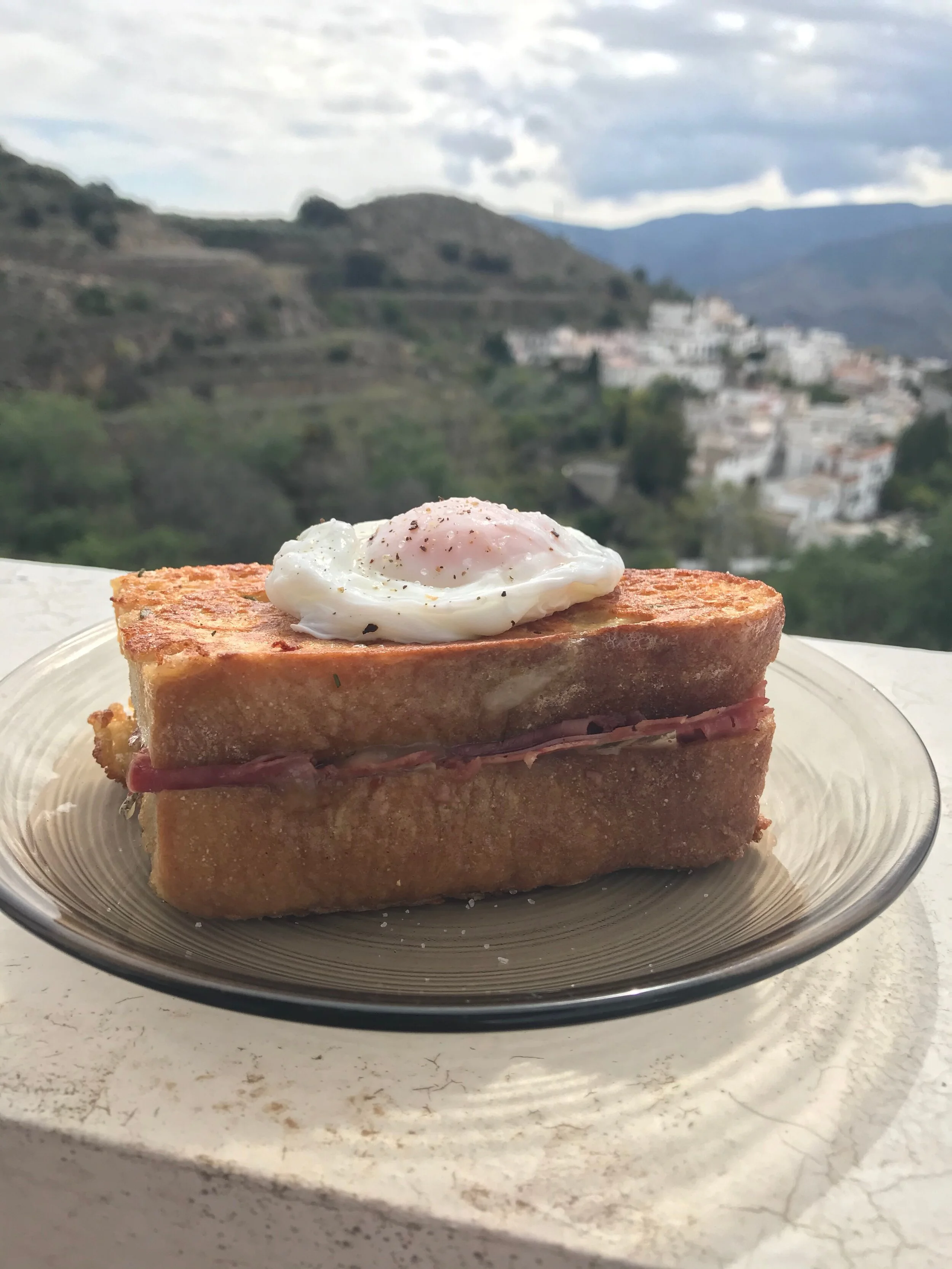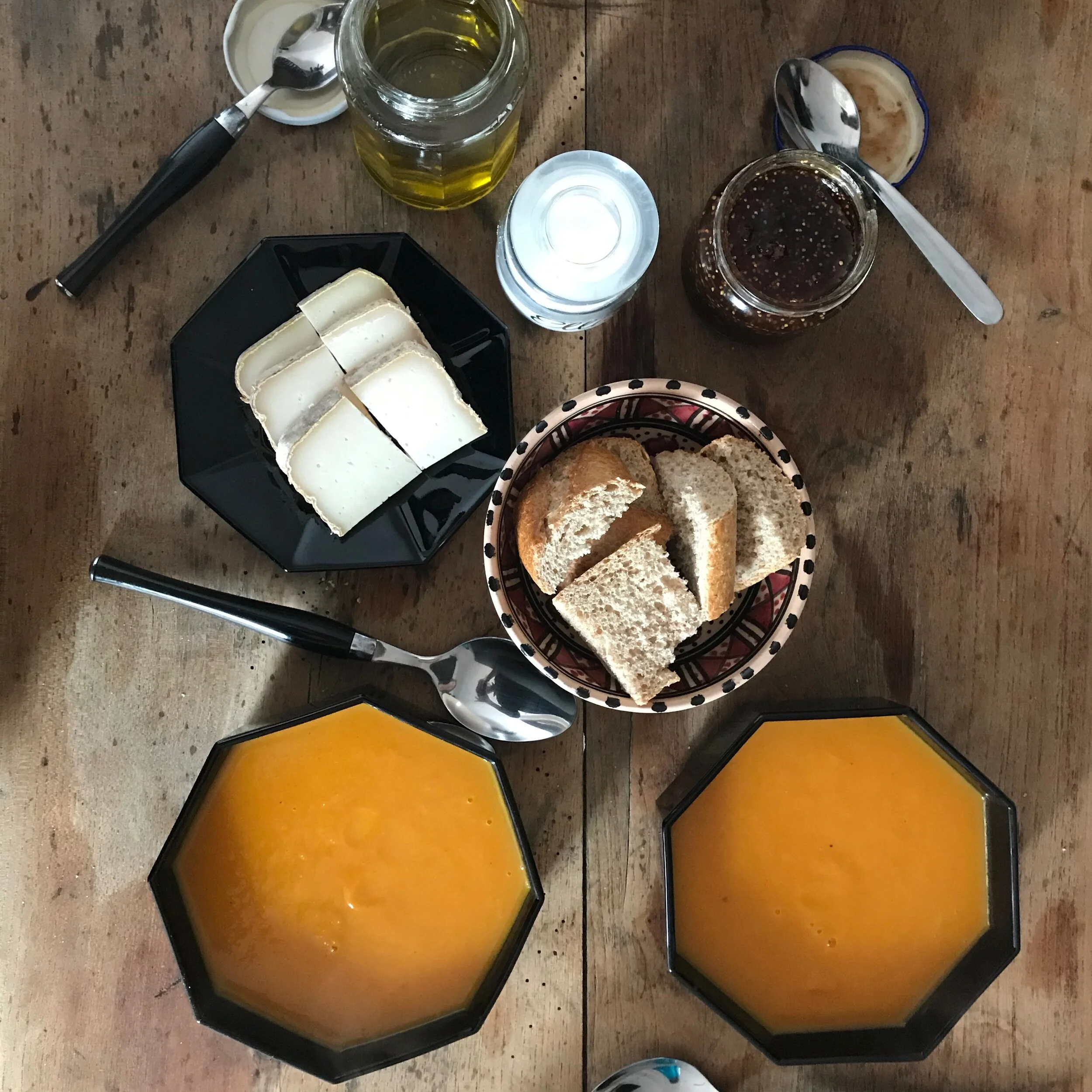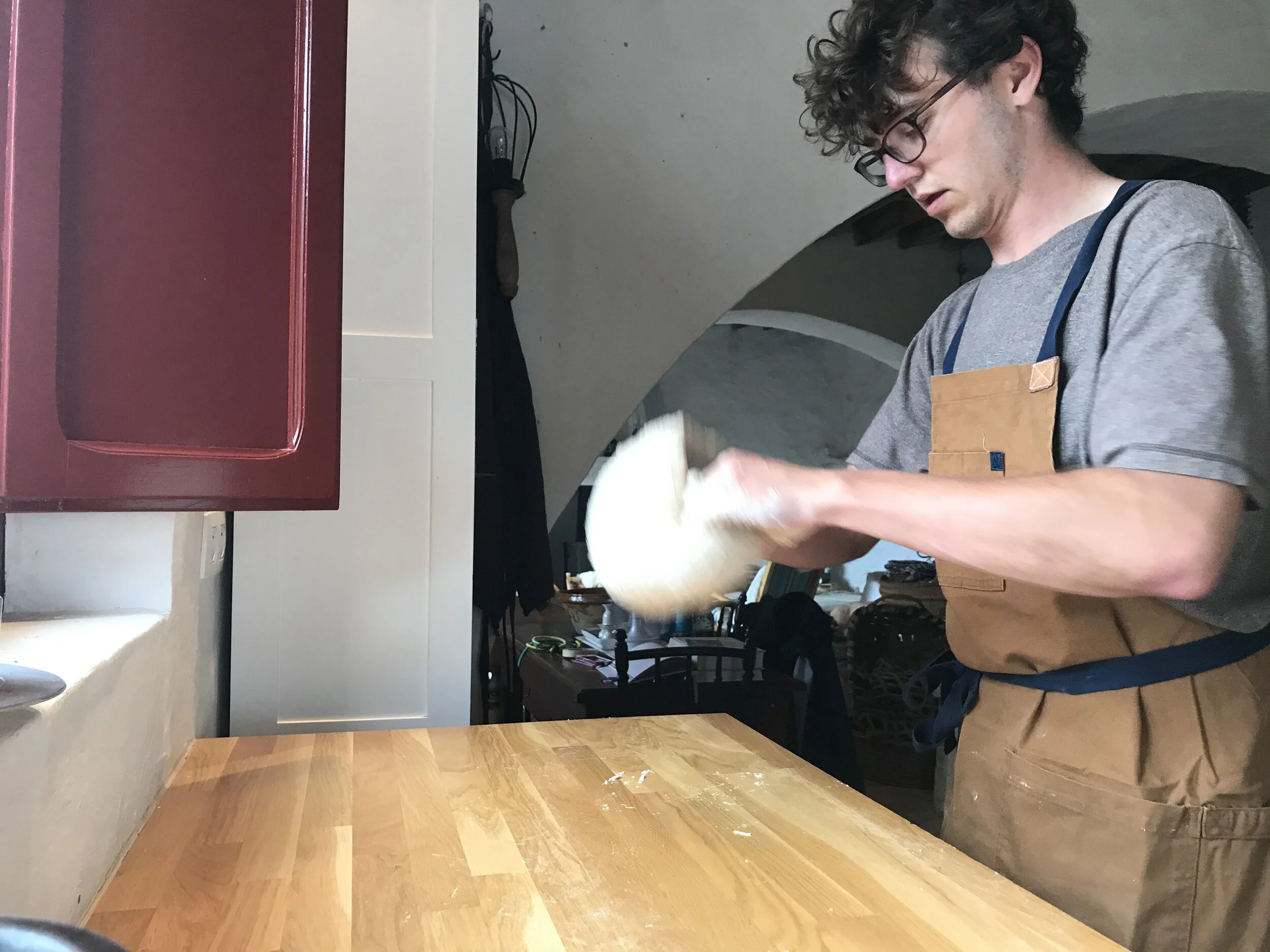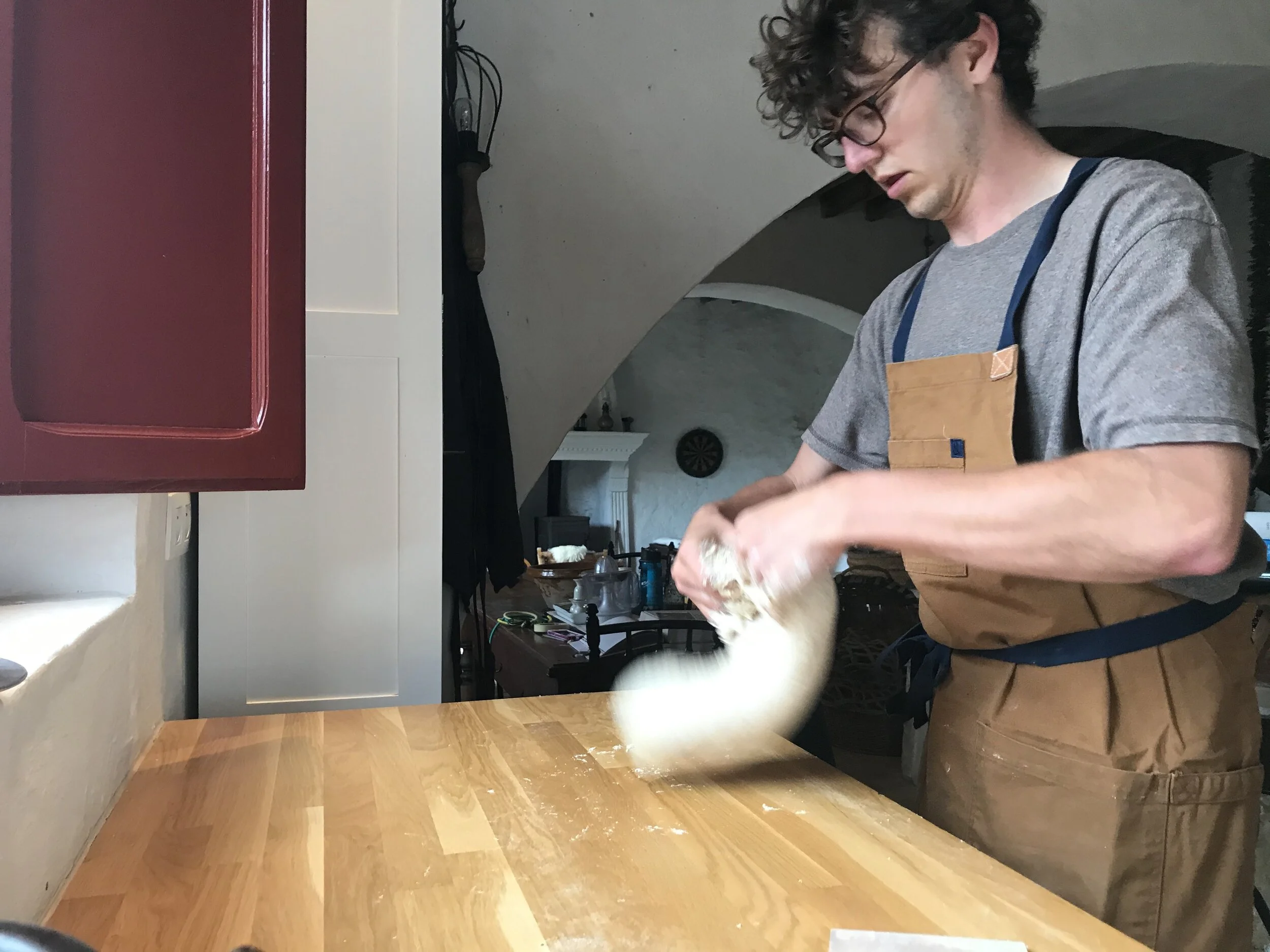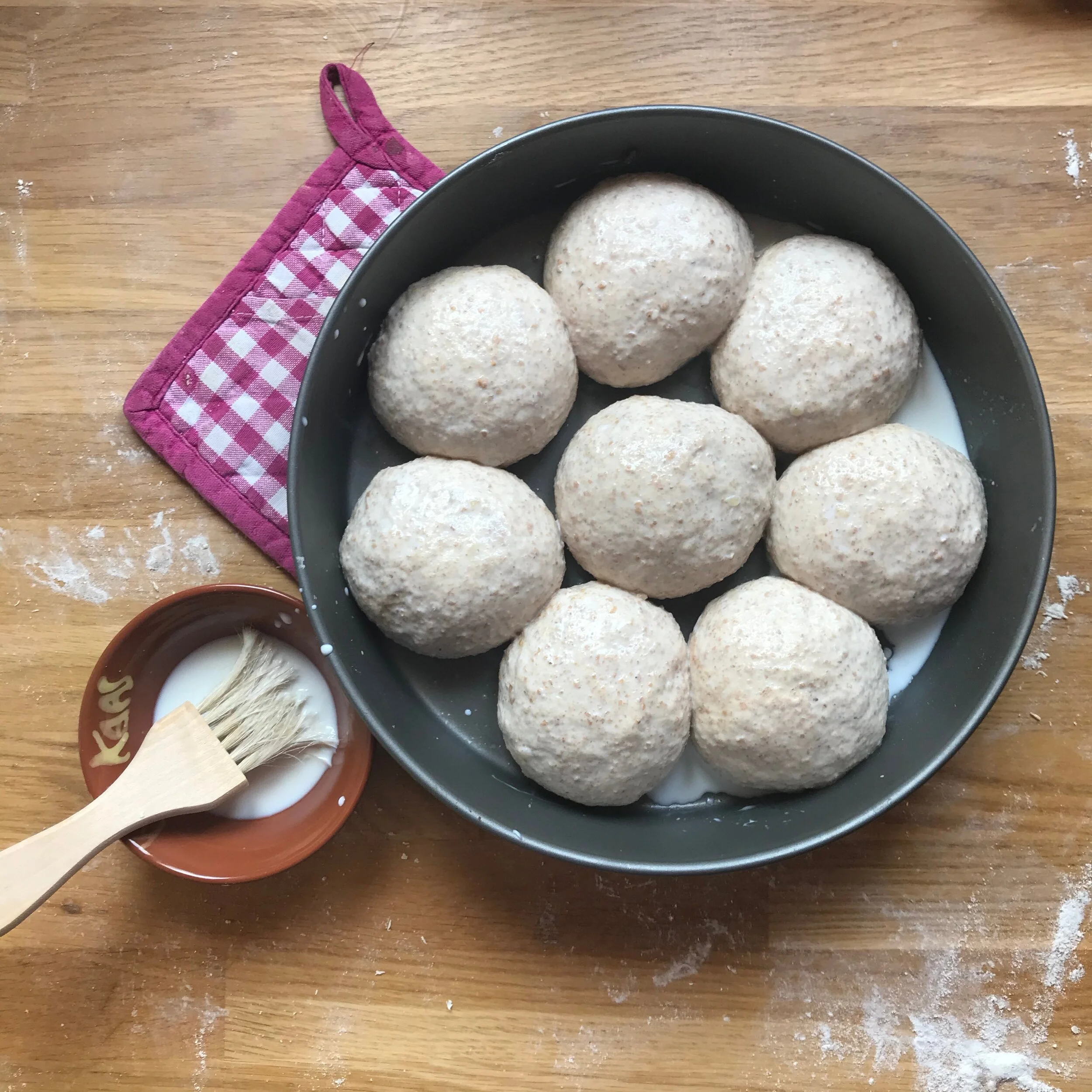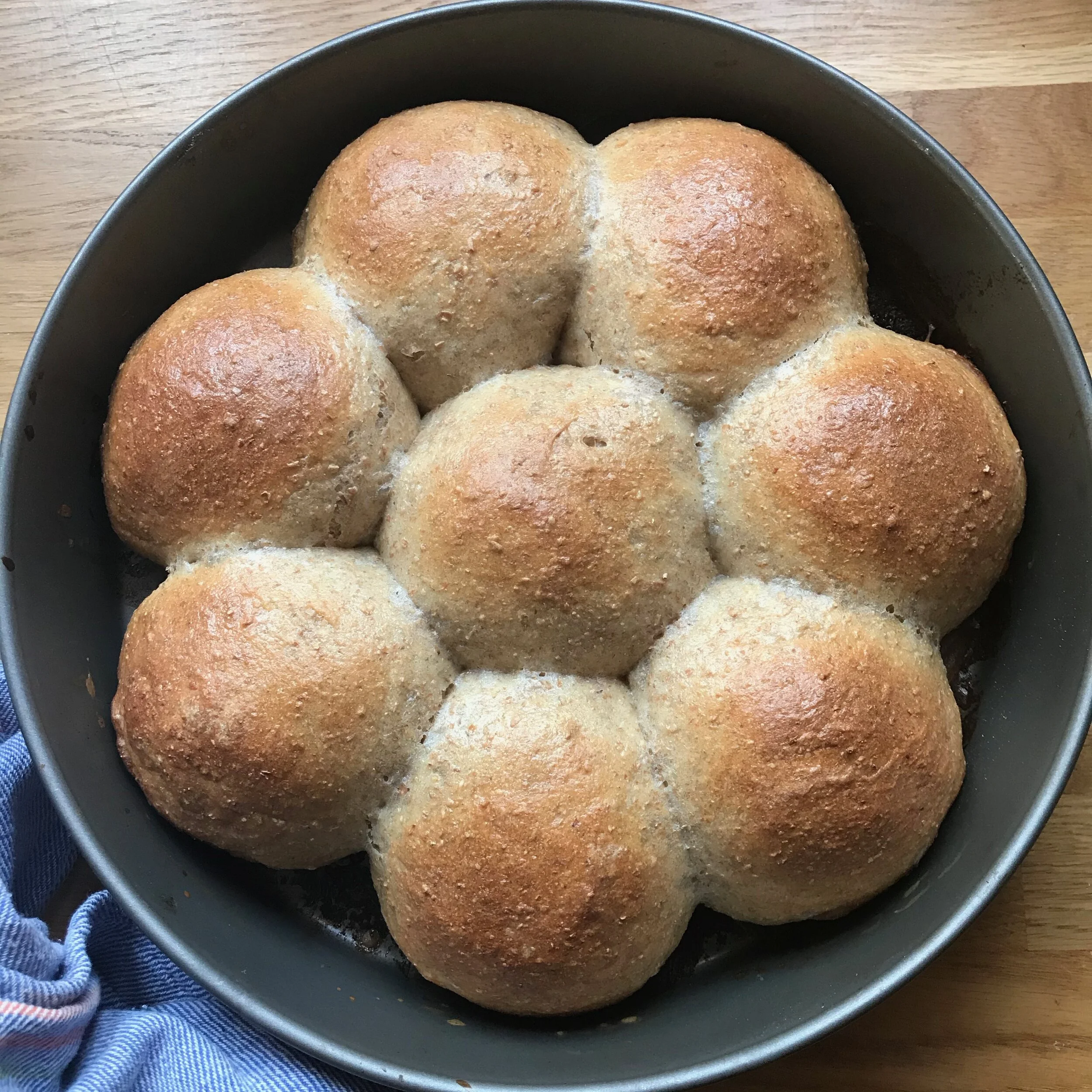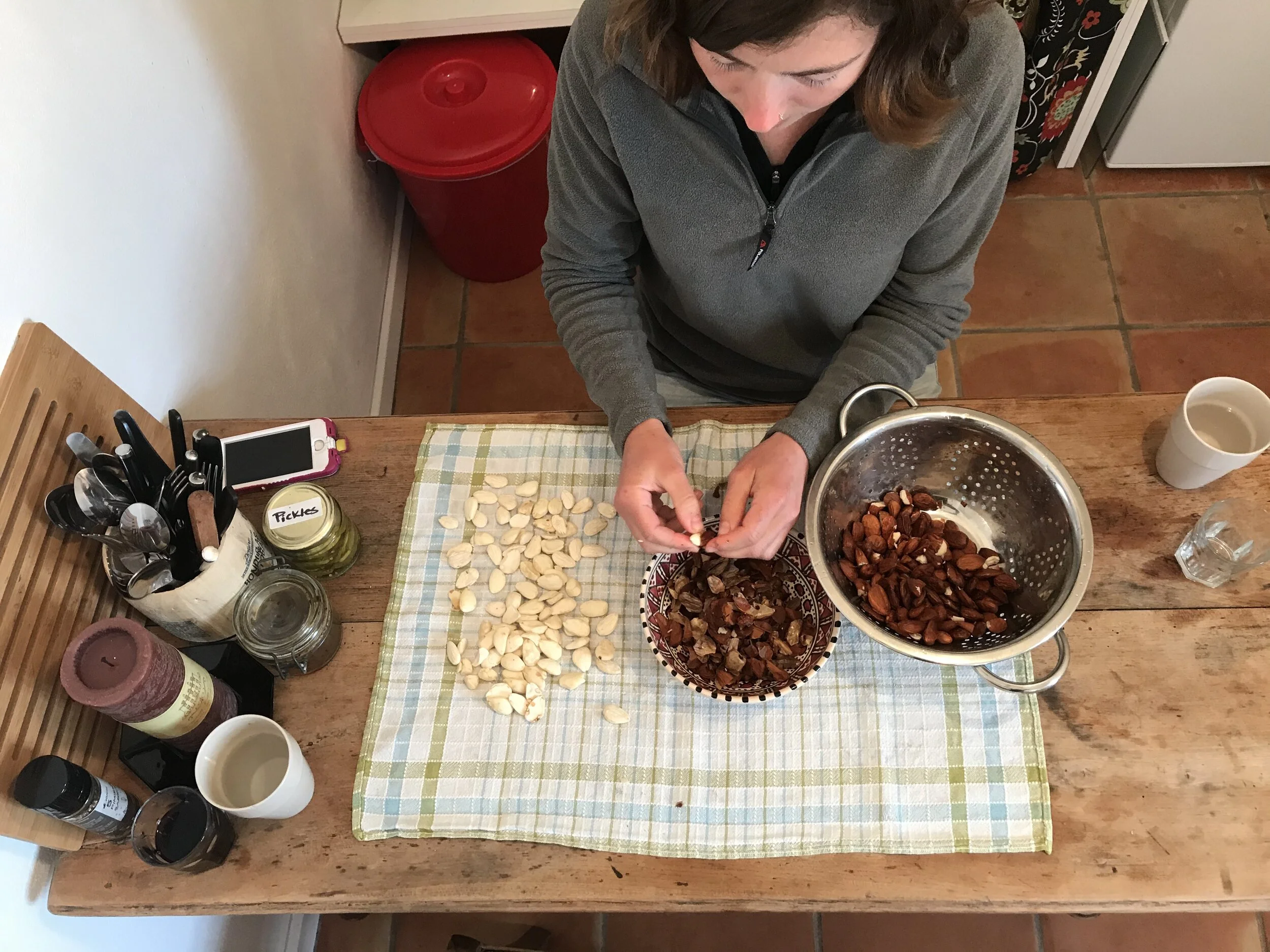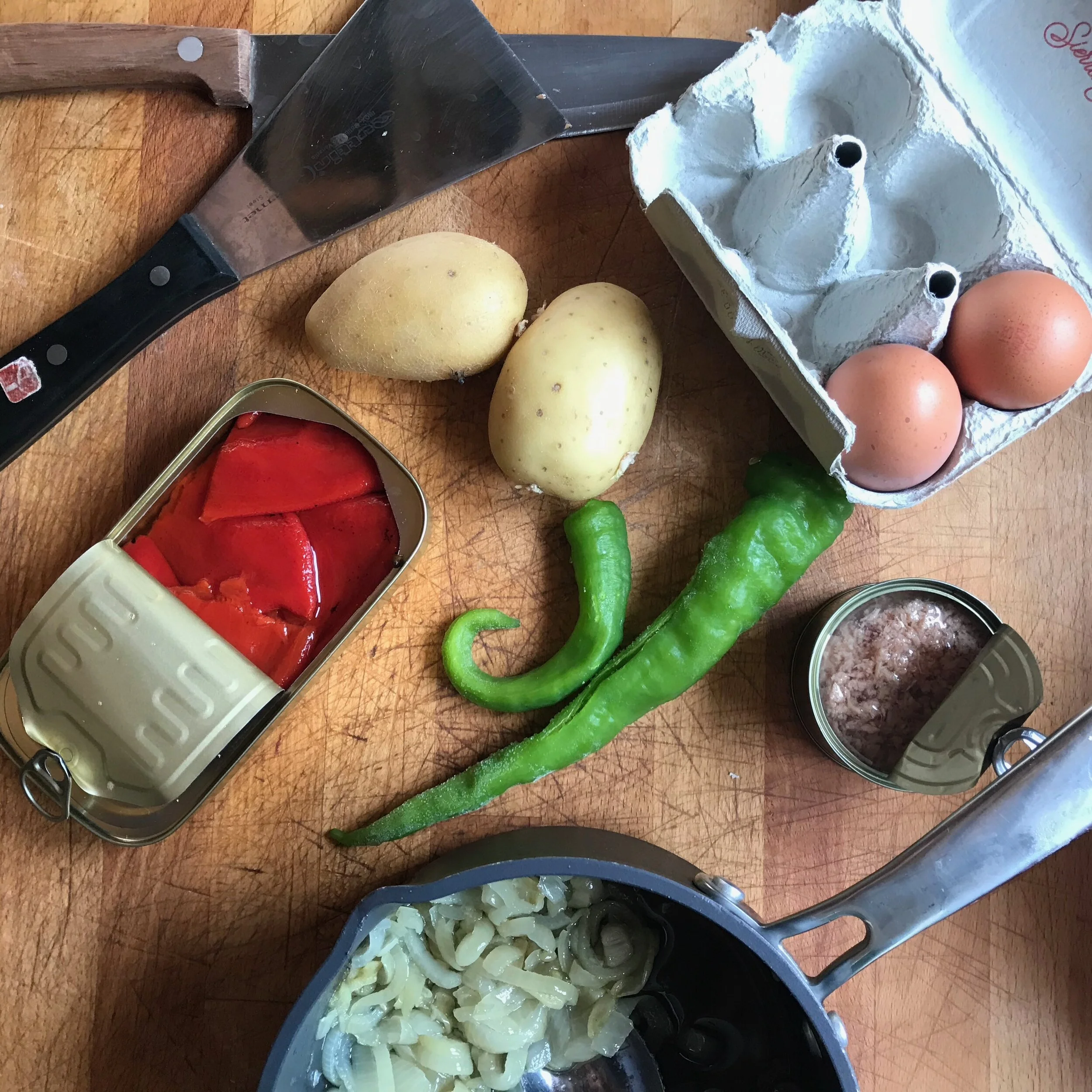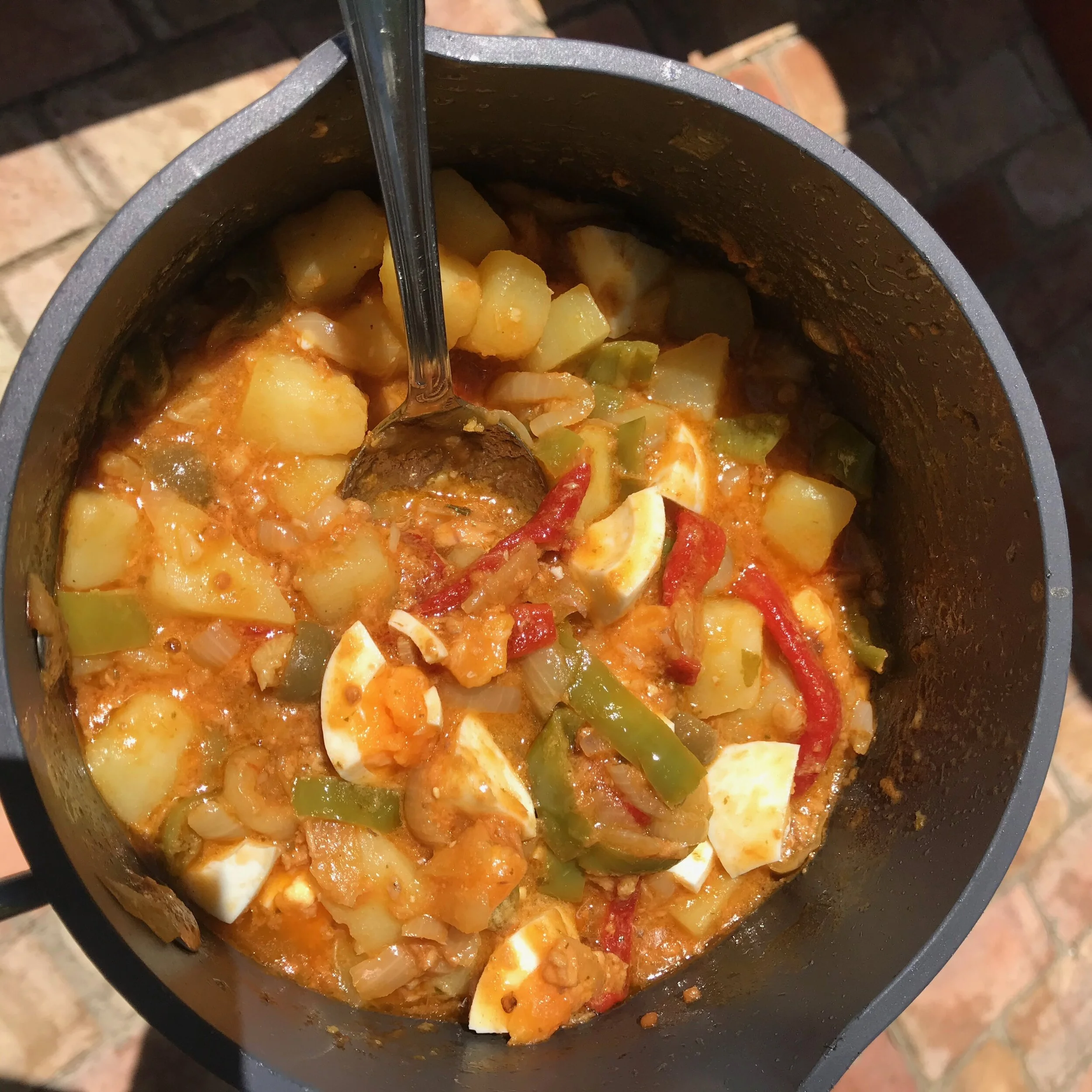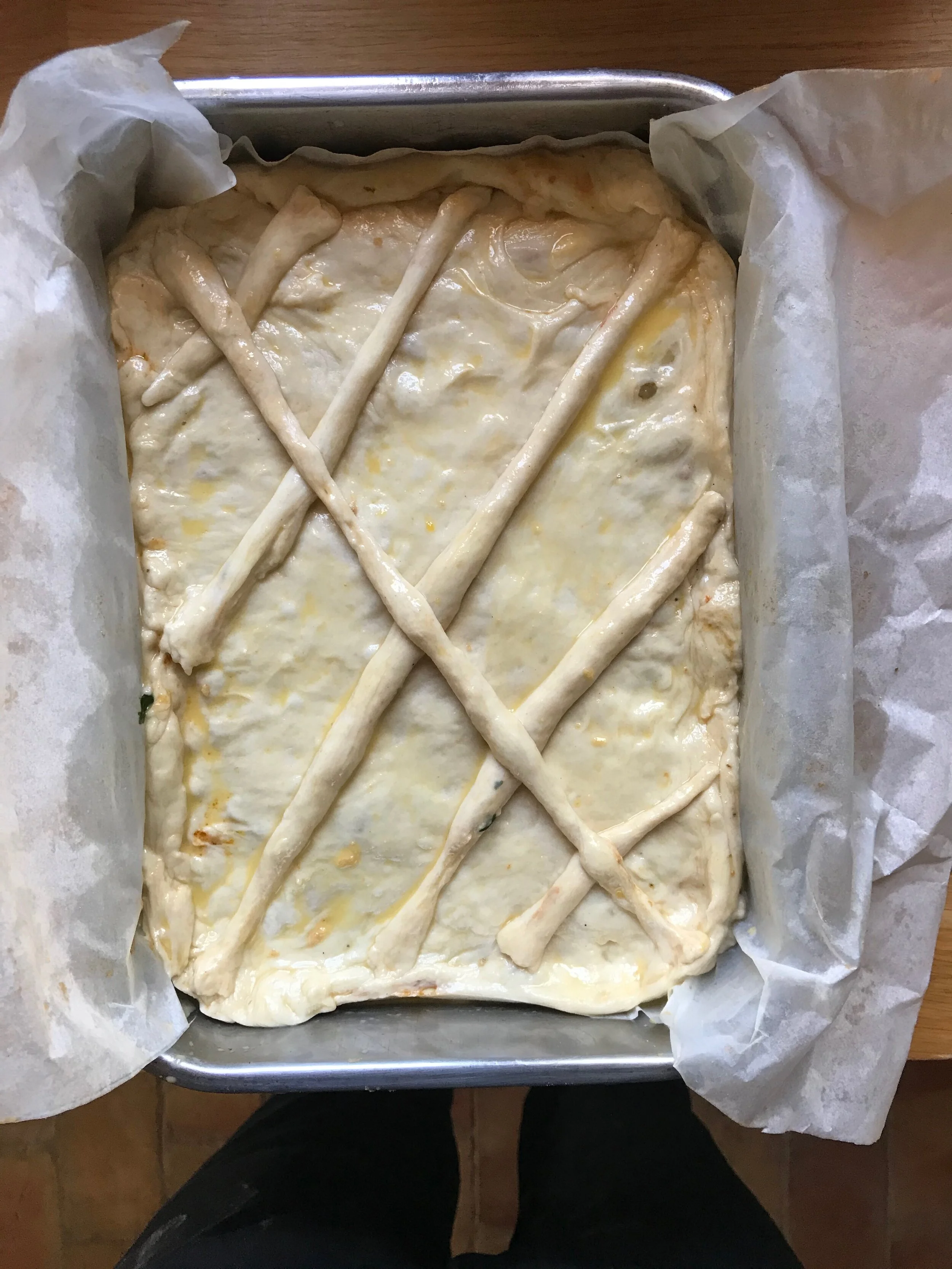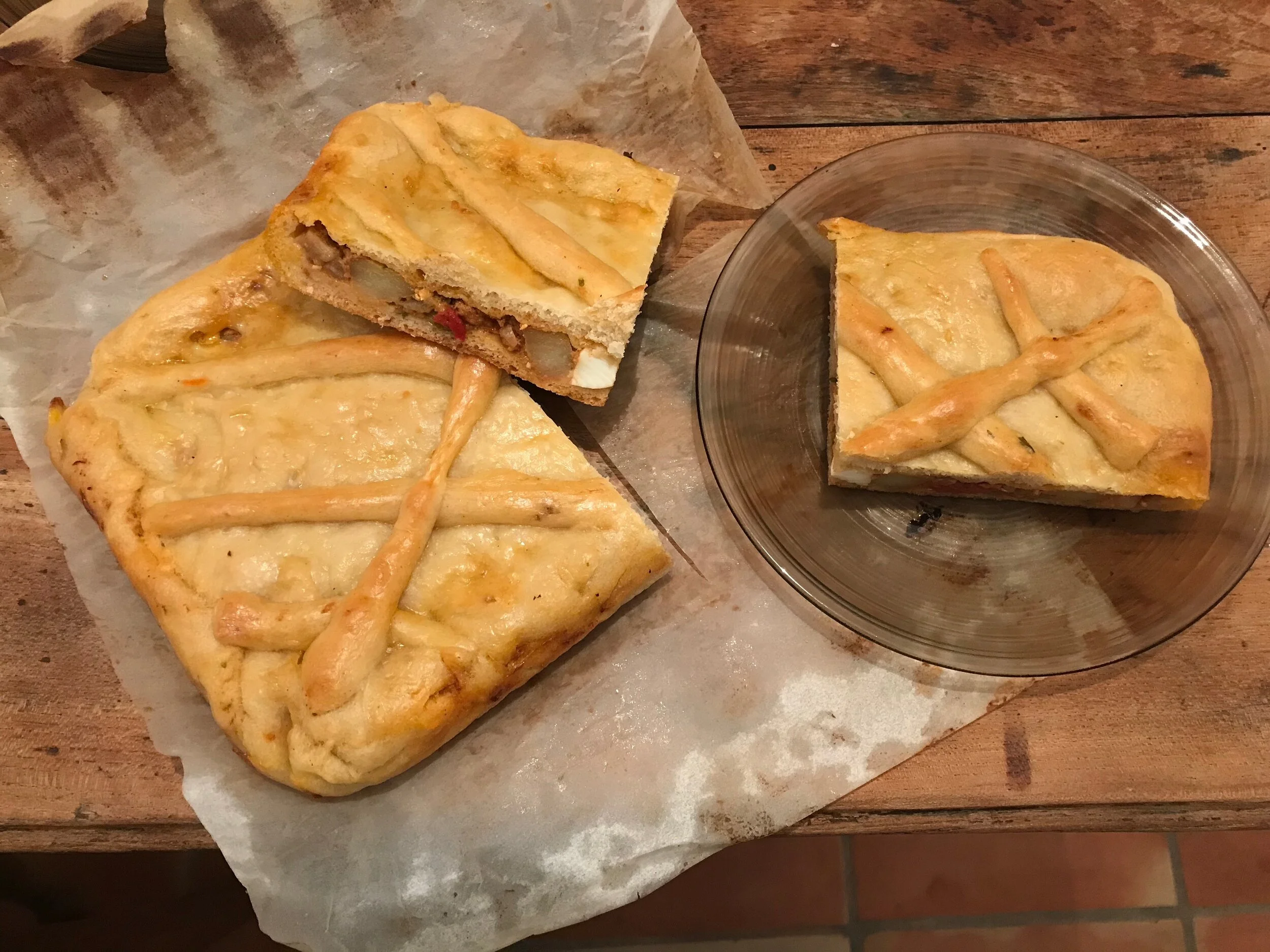Baking Days
It’s been raining incessantly for the past week. Still, last Thursday, and the week before that, we walked the dirt path from our Casa de Gatos to El Molino, opened the shutters, and preheated the oven. Unfortunately, our small apartment doesn’t have an oven, so we use the mill’s. We do this every Thursday. We bake.
We baked in the weeks before also, on back since March when we returned to Beires for the lockdown. It was rainy then too. More so, actually; non-stop sheets slowly needling the mountain and these thick white walls with their cold. In those first chilly weeks of confusion and uncertainty, baking became one of the few things we looked forward to.
And practically speaking, baking has felt essential. Our nearest resource is a well-stocked co-op two villages over, but we’ve been hesitant to make more trips than are necessary. Partly because we’re aware of some food shortages. But mostly, because of the anxiety that comes with needing to grab our passports and bypass policed road blocks to get bread. Only recently did we discover that the small corner store in the village nearest us – walkable via the network of mountain trails, through groves and across the highway – had re-opened. But their selection is limited and, again, we don’t want to take more than our share. Moreover, while the wall of tinned seafood – from sardines to cockles to chopped octopus – is always brimming, the availability of bread is less reliable. And when they have it, it may be fresh or it may be days old, a riddle of the local lockdown distribution pattern which we haven’t yet figured out. In short, if we wanted breads or pastries or cookies, we’d have to make them ourselves.
Not at first though. It started with gifts from Jodi: we spent our days waiting for her knock on our door, the echo of her steps running back up to the mill (she worried at that time about spreading or catching anything), and the satisfying smooth-shifting of our deadbolt. All portents of a new delivery. Eventually, any one of these could trigger a pavlovian response in us, gleeful and drooling as our heavy door silently swung open onto heavy plastic bags and tinfoil wrapped goodies. Rye brownies from the Violet baking book flaked with sea salt. Bertinet’s breakfast bread studded with nuts. A caramel-pear torte sticky and glistening.
Not at first though. It started with gifts from Jodi: we spent our days waiting for her knock on our door, the echo of her steps running back up to the mill (she worried at that time about spreading or catching anything), and the satisfying smooth-shifting of our deadbolt. All portents of a new delivery. Eventually, any one of these could trigger a pavlovian response in us, gleeful and drooling as our heavy door silently swung open onto heavy plastic bags and tinfoil wrapped goodies. Rye brownies from the Violet baking book flaked with sea salt; Bertinet’s breakfast bread studded with nuts; A caramel-pear torte sticky and glistening.
We savored these bites, like glimmers of sun in the storm. Slowly unwrapping each, being particularly careful with the foil just to stretch-out the process, build anticipation. After an indulgent first bite we’d partition them out, like war-time rations, so that we wouldn’t run out between deliveries. A half-portion for each of us after dinner every other day, more or less. What can I say, quarantine makes you do crazy things.
We just never knew when, and always feared the day, the deliveries might stop. If Jodi were to run out of flour or, heaven forbid, decide to stop baking for awhile (a seeming impossibility if you know Jodi well, though still something we worried over every time we portioned out the last of our muffins or cookies). As the lockdown dragged on, weeks longer than any of us expected, we slowly forgot these worries; endless sunless days practically assuring that Jodi would light the oven and return to her bowls and batters for distraction and comfort. At that point we could expect a new delivery almost every other day, and sometimes even every day. Endless rounds of rye sourdough and spelt loaves, cakes and bars. Life for us, in spite of everything – the weather, the panic, the unstoppable spreading of a novel-virus – was good.
Then she left. Returned home to her shanty shack on Cape May to quiet her mind while she rides out the rest of this storm. Our small freezer was still brimming with extra breads and desserts but, with nothing to do with our days but eat, we knew we’d quickly run out. So, beginning that week we took up Jodi’s mantle. We baked. And we’ve been baking every Thursday since.
Mornings, after coffee and a crossword, we gather together what we need from our small apartment: fruits and eggs, oil, butter, slices of jamón and olives, usually some soup or a head of lettuce for lunch. All of this goes into our largest pot to be carried up the mountain path to the mill. Jodi’s flour stash – multicereal, de trigo, centeno, espelta, avena; multi-grain, wheat, rye, spelt, oats – is already there. We’ll pick mountain herbs along the path on the way and perhaps stop by the huerta too, grabbing some favas or the last of the bolting chard to add to my empanada filling.
When we arrive the mill is quiet and dark. We unbolt the shutters and remove the wood barricade from in front of the patio door, swinging it open unto red brick and light. We grab bowls and Jodi’s scale, her dough scraper and some baking books (The Nordic Cook Book by Magnus Nilsson, recently), and get to work mixing doughs and preparing fillings. Usually I make breads and Breezy something sweet. Which often means that she spends the first hour or so cracking, shelling, and blanching almonds for the Spanish desserts we’ve been testing while, mixer-less, I hand work my breads on the bench.
Inevitably, at about this point – while my doughs begin their rest and Breezy toasts and grinds her almonds – we realize we’ve forgotten something; some odd spice or wine, the container of sugar we’d brought to our apartment, or the fact that we’d run out of salt at the mill and needed to bring more. This forgetting too, walking back along the path in Crocs and apron to fetch one cardamom pod, is somehow a comfortable part of the routine.
The routine alone, even if not an overly-rigorous one, has been nice. A welcome change for two people for whom an endless lazy vacation is hell. Wake up, coffee, bake, lunch, bake some more. In our lockdown, a world where clocks don’t matter and calendars have lost their meaning, baking now functions as both ritual and timepiece. Dough needs to be turned down and almond cookies checked. And the dwindling brownies on the tray and baguettes in the freezer serve as markers of how long it’s been since the previous Thursday.
I’ve been reading, in features in The New York Times and Eater, and seeing first-hand on Instagram, that others too, in record numbers (King Arthur has become like gold during the pandemic), have been finding solace in baking. Finding comfort in both the process and its results. And finding purpose when, stuck at home or newly unemployed, so many of us feel like we have none. Baking, if done thoughtfully and well (well here, meaning to the best of your ability), forces you to be entirely present: monitoring incremental additions of ingredients on the scale, feeling the dough as you work with it, and smelling for browning and checking for doneness independent of the stated time. It busies our hands so as to quiet the busy-ness of our quarantined minds.
And baking connects us in spite of social distancing. As we turn to our grandmother’s recipes and ask for a bubbling hunk of our friend’s sourdough starter, we’re rediscovering the ways that kitchens and food have always connected us, over time and across generations. Baking, even more so than cooking, is a craft of volume. There are no recipes for just one cookie and no pie which can be properly baked to serve one. And from the beginnings of civilization, bread transformed very little – flour, water, and yeast – into food for a community. When we bake, even by ourselves and even in quarantine, we bring this history with us. There’s an intentionality about it, an awareness of our broader social circles and communities. We bake alone together, to nourish our bodies and feed our souls.
These days, even though we can bake whenever we’d like, we still ration the products of our Thursdays. Carefully cooling potato rolls and whole wheat boules before slipping them into plastic bags to freeze. Wrapping empanada in wax paper neatly folded at the edges. Draping a kitchen towel over a basket lined with cookies to keep them fresh. There’s something satisfying and comforting just to know they’re there and that we made them. There’s something even more comforting to know that in a strange place and even stranger times, we can make hamburger buns. Or, more modestly, just have food without needing to cross a checkpoint.

